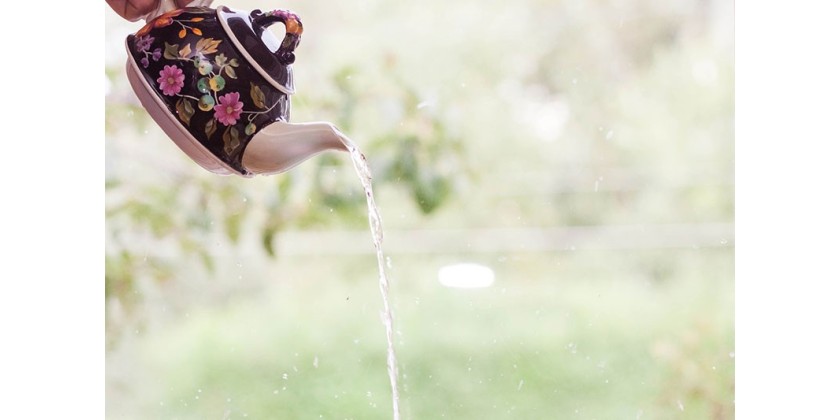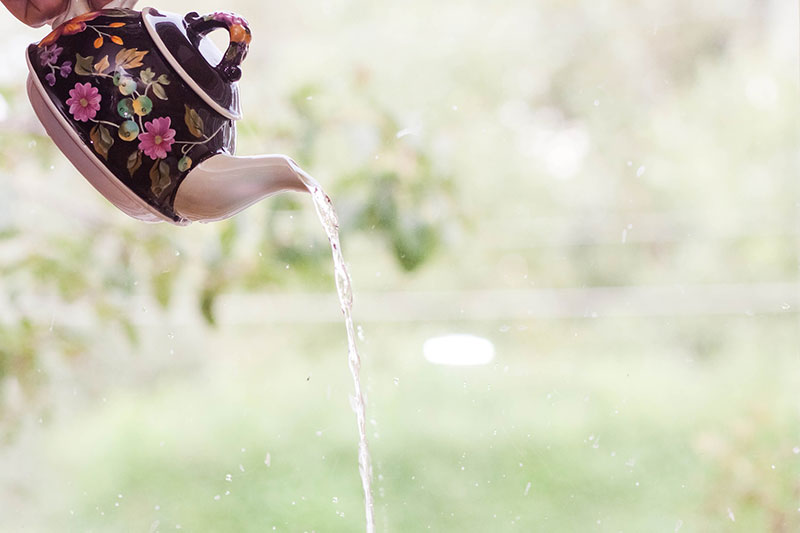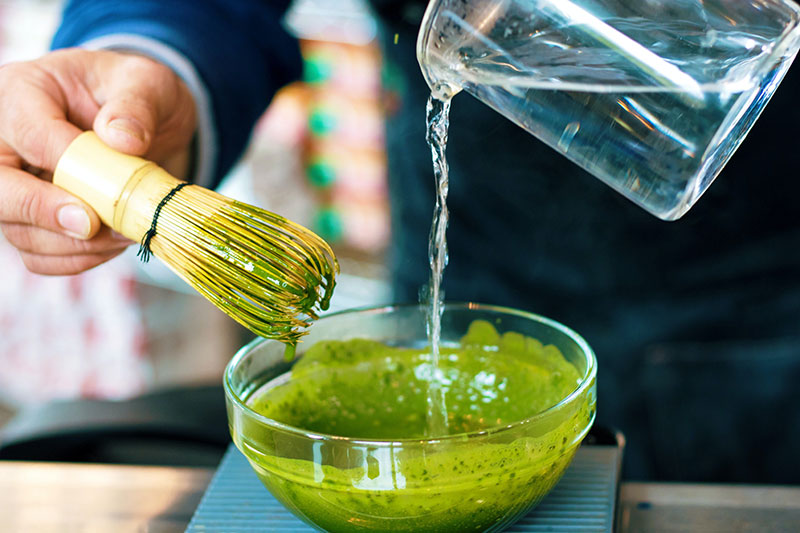
Boil the water, steep the tea for 3-5 minutes and you’re done. Well, it’s not so simple with green tea. Let’s try again. Bring water to a boil, let it cool to 167°F and steep for 2-3 minutes. This may be the right way, but not always. Do this with gyokuro and you will never taste all the flavor nuances this tea is so famous for. When talking about green tea water temperature, there’s a lot to explain.
Let’s start.
Why is water temperature so important when making green tea?
Water temperature is a crucial factor when making a perfect cup of tea. If you are like most tea drinkers, you probably started your tea journey with tea bags, rather than loose tea. Most tea bags will recommend the same seeping temperature and the same steeping time. And that’s fine, as it will work for almost any tea. In fact, loose leaf tea is not much different. There are general recommendations that will work with absolutely any green tea you drink.
Green tea water temperature is important because it will hugely impact the flavor and benefits of green tea. Catechins and caffeine will all be better extracted at higher temperatures and longer steeping time. This, however, doesn’t mean brewing green tea with boiling water for 5 minutes will be the best choice. Try doing it and you will probably refrain from drinking green tea for good.
Instead, if you want to maximize your drinking experience and potential benefits, it’s time to revisit and update your green tea brewing skills.

Water temperature and health benefits
Green tea temp and steep time will not only influence the flavor and color of your tea, but it will also impact how many nutrients will be extracted. In general, the higher temperature and longer steeping time will extract more EGCG, but there are exceptions.
For example, steeping green tea for 5 minutes at either 70 or 80 degrees Celsius (158 and 176°F) will extract almost the same catechin content. But steep it at 60 degrees or 90 degrees and you’ll extract about 30% less or more, respectively. Steeping tea leaves for 80 minutes will extract almost 3 times catechins [1], but it would also give a very unpalatable tea. Solution? Cold brew it instead.
The best water temperature for different green tea
When unsure, you can follow the general recommendation for making green tea – steeping it for 1-3 minutes at 167°F. This will give a cup of tea that’s delicious and healthy, no matter which green tea you choose.
To extract more nutrients and still enjoy the best tasting tea, re-steeping may work better than longer steeping. If re-steeping seems like too much trouble, you can cold-brew any green tea with amazing results – both in flavor and nutrients [2]. Cold steeping will extract less caffeine though, so keep that in mind if you are drinking tea for its energy boosting properties instead.
However, if you really want to get the best flavor, these are the perfect water temperatures for some of the most popular green teas.
Genmaicha water temperature
Genmaicha is a more forgiving tea, which means you can actually use a slightly hotter water. Anything between 158°F and 185°F will work well. Use cooler water with gyokuro genmaicha and hotter water with bancha genmaicha and always re-steep it.
Japanese sencha water temperature
Japanese sencha is best steeped for 1 minute at around 167°F. For the second infusion, use a much hotter water (around 194°F) and steep only for a couple of seconds, and then 167°F for the third infusion.
Hojicha water temperature
Hojicha is a roasted green tea and will usually benefit from hotter water. Anything between 176°F and 203°F will work well. With nearly boiling water, keep the steeping time at around 30-45 seconds. Re-steep it multiple times.
Gyokuro water temperature
Hojicha is the easiest green tea to brew, and Gyokuro is the most difficult. Water temperature plays a super important role in making the best cup of this steamed tea. Gyokuro is famous for its seaweed-like umami notes that are very pronounced when you brew it with cooler water. Try not to use water that’s hotter than 149°F for brewing this tea, as it will become very bitter. The best temperature? Between 104-131°F for 1-2 minutes, depending on the water temperature. Also, use at least 5 grams of tea per 100 ml of water.
Gunpowder water temperature
This unique Chinese green tea is one of those teas that requires extra attention when brewing. Which is interesting, especially since this tea is usually the first green many people try. When brewed with hot water, gunpowder is very bitter and dark yellow, both of which are unappealing. Keep the water temperature at around 158°F to 167°F.
Matcha water temperature
Although matcha doesn’t need steeping, water temperature is still very important. The best water temp for matcha will be between 158°F and 176°F. Water temperature may increase the benefits of matcha tea too.

Dragon Well water temperature
Dragon Well or Long Jing tea is one of the most popular Chinese teas. This super tasty tea is best brewed at around 176°F to 194°F for 1 to 2 minutes. This tea is much more forgiving than many other green teas, which makes it great for tea beginners too.
Green Tea Water Temperature Recap
If you really want to enjoy your green tea, water temperature plays a super important role. When unsure, follow the general brewing suggestions and never over-steep the tea leaves. If you want to make your brewing ritual to another level and enjoy the best benefits, experiment with different temperatures and always re-steep your tea.
Sources:
[1] https://www.researchgate.net/publication/222000324_Effect_of_Brewing_Temperature_and_Duration_on_Green_Tea_Catechin_Solubilization_Basis_for_Production_of_EGC_and_EGCG-Enriched_Fractions



Leave a Reply Cancel Reply